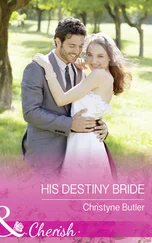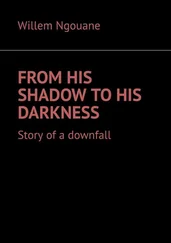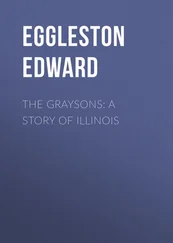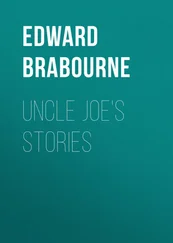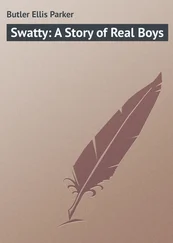Edward Limonov - His Butler’s Story (1980-1981)
Здесь есть возможность читать онлайн «Edward Limonov - His Butler’s Story (1980-1981)» весь текст электронной книги совершенно бесплатно (целиком полную версию без сокращений). В некоторых случаях можно слушать аудио, скачать через торрент в формате fb2 и присутствует краткое содержание. Жанр: Современная проза, на английском языке. Описание произведения, (предисловие) а так же отзывы посетителей доступны на портале библиотеки ЛибКат.
- Название:His Butler’s Story (1980-1981)
- Автор:
- Жанр:
- Год:неизвестен
- ISBN:нет данных
- Рейтинг книги:5 / 5. Голосов: 1
-
Избранное:Добавить в избранное
- Отзывы:
-
Ваша оценка:
- 100
- 1
- 2
- 3
- 4
- 5
His Butler’s Story (1980-1981): краткое содержание, описание и аннотация
Предлагаем к чтению аннотацию, описание, краткое содержание или предисловие (зависит от того, что написал сам автор книги «His Butler’s Story (1980-1981)»). Если вы не нашли необходимую информацию о книге — напишите в комментариях, мы постараемся отыскать её.
His Butler’s Story (1980-1981) — читать онлайн бесплатно полную книгу (весь текст) целиком
Ниже представлен текст книги, разбитый по страницам. Система сохранения места последней прочитанной страницы, позволяет с удобством читать онлайн бесплатно книгу «His Butler’s Story (1980-1981)», без необходимости каждый раз заново искать на чём Вы остановились. Поставьте закладку, и сможете в любой момент перейти на страницу, на которой закончили чтение.
Интервал:
Закладка:
Volodya had the highest regard for the manuscript of my first novel, the same one that had knocked Efimenkov out, and although he called me an "underground man" and was a little afraid of me, I think, he treated me very cordially. While we made the piroshki and pelmeni, a tediously mechanical activity, Volodya would, when he was in the mood, recite poetry to me, sometimes for hours on end.
Occasionally Lodyzhnikov would drop by for a little bite of something good to eat, say a meat patty with mushrooms, since he lived nearby. To Madame Margarita, he was dearer than if he had been her own son. The only thing I didn't understand was why she had chosen Lodyzhnikov for a son and not some obscure youth — me for example. And really, why not? Especially considering the fact that before Lodyzhnikov, Yakovlev had been Madame Margarita's son for a while, as had the just recently emigrated Bulgakov, along with his entire family. Sashenka became her favorite and the most prominent of her sons. Moreover, Madame took care of all his affairs for him, so that Sashenka was the spoiled child of the family. "Don't eat the cherries, boys; they're for Sashenka. Sashenka loves cherries. And the patties in the refrigerator are for him too." Madame Margarita took sweet tea in a thermos and cherries to him at the theater.
Sashenka's a nice boy, I thought, while I made the fucking pelmeni. He dances. But Limonov is mean and bad. He's not entitled to cherries. Limonov makes pelmeni for three dollars an hour.
A few days after Jenny's sudden visit to my hotel, I took a great quantity of pelmeni I'd made by myself from Madame Margarita's to the millionaire's little house — Jenny was going to have a party with Russian food and had invited all her friends. Besides the pelmeni, I also made a huge pot of shchi, or Russian cabbage soup. I tried to make a fruit kisel for dessert using Madame Margarita's recipe, but I botched it and it wouldn't set for some reason. I still don't know how to make it. Jenny was obviously planning to introduce her new boyfriend to her friends. That meant she had finally accepted me.
I arrived from Madame Margarita's with the pelmeni, and as usual Jenny had company. Sitting in the kitchen with the blinds down were Bridget and her boyfriend Douglas, a drummer with a very well-known New York rock group, and Jenny, who was rolling them a joint(!). She had no intention of smoking it herself, but she couldn't deny herself the modest pleasure of at least rolling it.
Jenny didn't care much for Douglas. "From beating his drums for so many years, he's turned into a complete dummy; he's started to rattle his brain," she said and laughed. She and Bridget had been friends since high school, however, and for Bridget's sake Jenny put up with Douglas in "my kitchen," as she said with pride.
Bridget was sarcastic and cynical. Jenny was sarcastic too, but not nearly as much as Bridget. Bridget thought the whole world was shit and never had anything good to say about anybody. She was even planning to write a book about her life entitled Shit.
I had the sense that Bridget respected me for some reason. Perhaps because I didn't care too much for people either and made fun of them. Or maybe she believed in me, to put it in more pompous terms. I don't know, it's always an elusive thing. Some people like you; others don't.
They started smoking, and I took a drag too whenever my turn came. After a few joints we were all doing just fine and starting to laugh a lot, and then we went out onto the terrace in the garden. And we laughed there too. The stout Mr. Robinson was walking past us from the river to his house with several guests, and he looked at us in alarm. After Robinson had disappeared into his house, Jenny said, laughing, "Mr. Robinson doesn't think servants should use the garden." It should be said in Steven's favor that he didn't check up on or in any way forbid anything either to Jenny or, later on, to me, but whether that was from indifference or a genuine respect for liberty, I am unable to say.
Two children, a boy and a girl dressed in white, suddenly ran into the garden, ran into it as if out of a newsreel at the beginning of the century, clad in wide pants reaching to their knees and wide shirts the same shade of white, and started turning somersaults on the grass. They were about ten, no more. Later on another boy came out, a bit older than the others, slender and handsome, with long dark hair, but dressed in the same white clothes…
"Isabelle's children," Jenny said to me. "She's the only friend I have in this neighborhood. That house over there belongs to her," and Jenny pointed to a four-story townhouse partly hidden by a huge magnolia tree.
The children hurtled past like phantoms from the beautiful life back into their house and then returned with little orange plastic rattles which they started beating each other with as if they were clubs. Jenny and Douglas got involved in the mayhem too, and the garden was filled with squeals and laughter.
Out from behind the magnolia tree in response to the laughter came a woman dressed in a lilac smock patterned with crimson flowers tightly girded with a broad flowered belt, and wide lilac silk trousers and spike heels. "A beautiful Jewess," as our Pushkin would have said. A very beautiful Jewish woman. She walked over to us and stood next to a flowering azalea bush on the terrace, on purpose probably, and to very good effect.
Jenny introduced us: "Isabelle, my neighbor and friend! Edward, a Russian poet!" Jenny pronounced "Russian poet" with pride, it seemed to me. Isabelle and I lightly shook hands. Her hand was covered in gold and jewels. A small hand.
Then, calling the children over, Isabelle introduced them to me:
"Edward, this is my daughter Chloe." The plump but graceful Chloe held out her hand, then withdrew to the grass and started spinning the wheel of a toy — showing me that she knew how. Silently.
"This is my son Rudy," said Isabelle, showing me a plump boy with a provocatively insolent face who firmly shook my hand like an adult.
"And this is my oldest son, Valentine."
The oldest boy was gentler, slenderer, and more delicate than die others. He had large, sad black eyes, perhaps just like his Portuguese father's. I liked Valentine best — he was independent, like me, although he seemed to take part in all their games. And, as I later found out, he liked me too.
"Valentine said, 'Edward's a very good person, " Jenny told me later on, adding, "and he doesn't say that about everybody. I have a lot of respect for his opinion; he's very smart."
I think that I'm not a very good person, or that I was a good person, but I stopped being one from being worn out by people who forced me to live by their rules. Or maybe I never was a good person either. I'm capable of being good, but I'm also very capable of being mean. Valentine, however, died not very long ago, surviving to the day before Christmas. He was thirteen years old, and he died of cancer. Neither chemotherapy nor the best doctors in the world could save him. "Whom the gods love dies young."
A year after that scene in the garden, he suddenly didn't feel good, and after tests and a check-up, the doctors discovered that he had cancer, and the family moved to California, to a climate better than New York's. They treated Valentine, and one hope was replaced by another, and it seemed that there was still reason to hope, and then he died.
Did I pity the boy? Yes. The usual horror of life. Valentine was unlucky.
I'm still alive for the time being. If there is "another world," Valentine and I will meet there and we'll be friends. We were kindred spirits.
But then, standing and sitting in the flowering garden, we suspected nothing. All the trees were in bloom, every one of them, except for the magnolia, which had already finished. Isabelle was saying that she planned to come to the party that evening too and would bring the children with her and something Russian to eat, some caviar and vodka she had bought. "I'm always by myself," she said, neither to Bridget nor to Douglas but to me. "I don't go anywhere, only to my neighbor Jenny's when she has a party." She said it, and then went sadly back along the path to her house.
Читать дальшеИнтервал:
Закладка:
Похожие книги на «His Butler’s Story (1980-1981)»
Представляем Вашему вниманию похожие книги на «His Butler’s Story (1980-1981)» списком для выбора. Мы отобрали схожую по названию и смыслу литературу в надежде предоставить читателям больше вариантов отыскать новые, интересные, ещё непрочитанные произведения.
Обсуждение, отзывы о книге «His Butler’s Story (1980-1981)» и просто собственные мнения читателей. Оставьте ваши комментарии, напишите, что Вы думаете о произведении, его смысле или главных героях. Укажите что конкретно понравилось, а что нет, и почему Вы так считаете.

